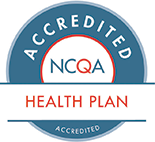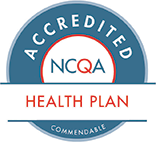Acid Reflux
Know your options—a guide to minimally invasive procedures (MIP) for reflux
What is acid reflux?
Millions of Americans just like you suffer from chronic heartburn. And it's not the occasional heartburn that can be relieved with antacids. It's frequent and often may be painful. It can decrease the quality of your life and may keep you from your favorite foods or even keep you up at night.
And, it actually may be a symptom of GERD. GERD stands for gastroesophageal reflux disease. GERD occurs when the barrier between the stomach and the esophagus is not working. GERD is a serious medical condition that can aggravate or cause other serious conditions including asthma and Barrett's esophagus, a precancerous condition that can lead to esophageal cancer. Stomach acid, which is very strong, is able to splash up into the esophagus repeatedly. This causes heartburn, that burning pain behind the breastbone.
Chronic heartburn and GERD are common conditions that occur in men, women and children. However, GERD can lead to serious health risks such as Barrett's esophagus and esophageal cancer. GERD is often caused by a mechanical problem, such as a hiatal hernia or a defective lower esophageal sphincter. So, medications or diet and lifestyle changes do not work for everyone. And in the case of medications, you may not want to take a daily medication or you may dislike the side effects.
If you have frequent heartburn or other symptoms of GERD, you may want to see your doctor. You have several options for treating the symptoms of chronic heartburn and GERD. Your choices include diet and lifestyle changes, and medication. Only you and your doctor can decide the right course of treatment. Only a physical exam and diagnostic tests performed by a healthcare professional can determine if you have GERD. Talk to your doctor to find out what the difference is between heartburn and GERD.
What is antireflux surgery?
In some cases, the success of taking a PPI (a medication) is an indication that a patient would be a good candidate for surgery due to the positive outcomes of taking the medication. Surgery is an option for selected patients with severe chronic heartburn that disrupts their lives, despite lifestyle modifications and appropriate medication. More than 100,000 people in the U.S. choose to have antireflux surgery each year. Antireflux surgery is a surgical procedure that involves wrapping part of the stomach, called the fundus, around the lower esophagus. The esophagus, or food pipe, has a barrier to keep stomach acid and contents from splashing or refluxing back up into the esophagus. This barrier is called the lower esophageal sphincter.
By wrapping part of the stomach around the lower esophageal sphincter, this procedure strengthens the lower esophageal sphincter, preventing the reflux of stomach acid into the esophagus. If a hiatal hernia exists, it can be repaired at the same time.
Know your options:
MIP for reflux
Antireflux surgery has been performed for more than 50 years as an open procedure. With open surgery, the surgeon creates a long incision, opening up the patient. However, techniques in surgery are evolving. One of these surgical advances is minimally invasive surgery.
| Side-by-side comparison | |||||||||
|---|---|---|---|---|---|---|---|---|---|
| Open antireflux surgery | Minimally invasive antireflux surgery | ||||||||
|
|
||||||||
Know the risks
As with any surgical procedure, MIP for reflux may present risks. You need to talk to your doctor about whether you are a candidate for MIP for antireflux surgery. And remember, serious complications are rare. The risk for serious complications depends on the reason the surgery is needed and your medical condition and age, as well as on the experience of the surgeon and anesthesiologist. Ask your doctor or surgeon about what to expect after surgery, as well as the risks that may occur with surgery, including:
- Reactions to medications or anesthesia
- Breathing problems
- Bleeding
- Infection
- Injury to blood vessels
- Injury to internal organs
- Blood clots in the veins or lungs
- Death (rare)
Additionally, an open surgery has a greater potential for:
- Muscle injury
- Post-operative incisional hernia
Is an MIP for reflux right for you?
For some patients, MIP is not an appropriate choice. Your surgeon will help you determine the best choice for you and will consider factors such as:
Indications
Antireflux surgery is indicated for patients who are diagnosed with gastroesophageal reflux disease (GERD) and
- Have symptoms that are not relieved by medication
- Are unable to take medication due to side effects
- Do not wish to take medication indefinitely
- Suffer from symptoms, such as asthma, hoarseness or cough, that are associated with GERD and are not improved with medication
Contraindications
Surgical treatment for GERD is typically not recommended for
- Older adults, especially if other health problems exist
- People who have weak peristalsis in the esophagus
- People who have unusual symptoms that may be made worse by surgery
- In some cases, surgeons may recommend a partial antireflux surgery
Risks and complications
- Bleeding
- Infection
- Deep vein thrombosis
- Complications due to anesthesia and medication
- Spleen injury*
- Port-site hernia
- Perforation
- Herniation
- Obstruction of the bowe
* To control operative bleeding, removal of the spleen may be necessary
Possible side effects
- Difficulty swallowing due to the stomach being wrapped too high or too tightly on the esophagus
- The esophagus sliding out of the wrapped portion of the stomach so that the lower esophageal sphincter is no longer supported
- Heartburn that comes back
- Bloating and discomfort from gas buildup because the person is not able to burp
- Excess gas
The decision to perform MIP or an open surgery should be made during a discussion with your surgeon. Sometimes a procedure can start out as MIP, but may have to be converted to an open surgery based on the factors listed above.
Talk to your doctor
It's important to talk to your doctor about your care. Use these questions as a guide to help you.
- Can we talk about surgical treatments for GERD? I'm interested in learning more about a minimally invasive procedure.
- I'm concerned about my GERD. What are the treatment options that you recommend for someone with my medical background?
- Can you recommend a few surgeons who perform minimally invasive procedures?
- If surgery is right for me, what are my next steps?
- What minimally invasive procedure would you recommend for GERD?
- How many times have you performed this procedure?
- What have the outcomes been?
- What are complications and side effects of this procedure?
- What should I do to prepare for surgery?
- What can I expect following surgery?
- What type of diagnostic evaluation is a patient required to undergo prior to surgery?
- Will I be referred to another physician for the diagnostic procedure?
Resources
©2005 Ethicon Endo-Surgery, Inc.
a Johnson & Johnson company
Questions?
If you can't find an answer, please feel free to contact our Customer Service Customer Service Customer Service
Questions?
If you can't find an answer, please feel free to contact our Customer Service
Employer web tools
Benefit Tracker
Check benefits, eligibility, incentive and utilization
Rate finder is now in the Producer Dashboard
Log in with your current username and password to create quotes for groups up to 50.
Producer DashboardLog in






Hello.
We have exciting news to share. ODS is changing its name to Moda Health.
Moda comes from the latin term "modus" and means "a way". We picked it because that's what we are here to do: help our communities find a way to better health.
Together, we can be more, be better.
Please select the state you live in, or the state where your employer is headquartered, so we can tailor your experience:

Hello.
Please select the state you live in, or the state where your employer is headquartered, so we can tailor your experience:
Privacy notice
We use cookies and similar analytics technologies to understand how visitors interact with our website, improve performance, and enhance user experience. These tools help us analyze traffic patterns and usage trends.
We do not collect or store personal information, track users for advertising purposes, or use social media plugins.
By continuing to use this site, you acknowledge our use of cookies for analytics purposes only. For more information, please refer to our Privacy Policy.
Changing your location to Oregon
You can return to your previous location in the site header.

